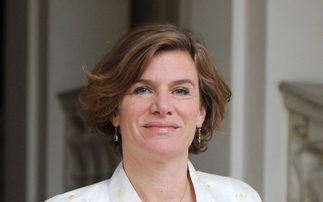Bonn climate talks set to conclude this evening with new 63-page text on the table
United Nations negotiators were expected to end a fractious week of talks in Bonn this evening with a vote on the contents of a mushrooming negotiating text, which is meant to be streamlined ahead of the crucial Paris Summit in December.
Officials unveiled a 63-page draft text this afternoon, which has been expanded significantly from the 20-page document that negotiators started the week with.
During the course of the five days, countries demanded a wide range of options were reinserted into the draft text, with the G77 group and China raising particular concerns over the key issues of loss and damage and climate finance.
Countries were this evening due to vote on whether to turn the draft into the official negotiation text to be debated at the 21st Conference of the Parties (COP21), which starts at the end of November.
A vote against adopting the proposed text would throw the talks into crisis. However, observers warned the adoption of a drastically expanded text would leave Ministers with a daunting task to finalise the agreement during the two-week-long Paris talks.
Tensions between some of the key players at the negotiations escalated during the week, as long-standing disagreements over climate funding and measures to help poorer nations to adapt to climate change resurfaced.
The fractious atmosphere was further amplified after civil society groups were excluded from some spin off groups where officials were discussing a number of contentious issues.
On Friday afternoon, some onlookers said there was a genuine possibility a handful of countries could reject the new text outright, which would mean picking up the last document to be formally agreed in Geneva at the start of the year.
Assuming the new text is agreed, NGO groups said progress appeared to have been made on a number of issues, such as greenhouse gas mitigation and transparency.
Meanwhile, 154 countries have now submitted their climate action plans, known as Intended Nationally Determined Contributions (INDCs), fuelling hopes the long-running talks could yet deliver a series of ambitious national climate policies that would serve to mobilise billions of dollars of clean tech investment.
Jennifer Morgan, global director of the Climate Program at the World Resources Institute (WRI), said some significant strides had been taken this week, but also warned much more work was needed. "This week negotiators took full ownership over crafting the draft agreement which demonstrates their strong commitment to a successful outcome in Paris," she said. "This determination needs to continue at all levels to connect the dots between the negotiations and the ministerial gatherings ahead of COP 21.
"The current state of the draft agreement reflects how close countries are to reaching consensus on key topics. For example, progress was made on mitigation and transparency where negotiators are now debating the details, while on adaptation and finance there remain more fundamental differences. Over 150 countries have put forward national climate plans, an unprecedented achievement. Now countries need to solidify the rules and norms to maximise the impact of these plans and drive climate action for decades to come."
Tasneem Essop, WWF head of delegation to the UN climate talks, said there were three key issues political leaders now needed to work on before they arrive in Paris. "A Paris agreement must feature solutions to address the loss and damage caused by mounting climate impacts, affecting people and places from Manila to California," she said in a statement. "We know that finance is left to the last moments of negotiations and used as a bargaining chip. But governments need to know that this last moment is now. They now only have just six weeks to figure that out. We need to be clear about the scale, the predictability and additionality of the financial support needed to help countries cut emissions and adapt to the devastating impacts of climate change."
This article is part of BusinessGreen's Road to Paris hub, hosted in association with PwC.










